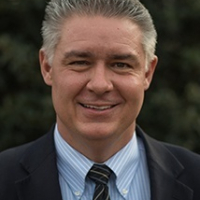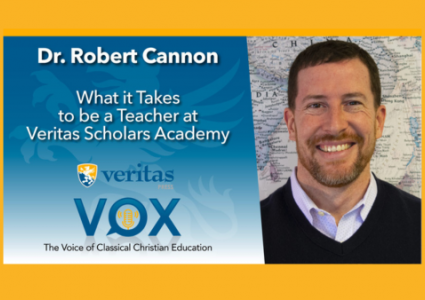Tour of Omnibus Series: The Bible

At the heart of all, we do in classical Christian education is Jesus. He is the foundation on which we build. He is the person that we are seeking to know and through Him, in the power of the Spirit, we can know the Father and worship our God in all His Trinitarian fullness. Of course, the Bible has many different genres that we will be covering in the tour of Omnibus, but I wanted to, at the very heart of our tour, speak to the greatest of all books. The only book that Christians call the Word of God.
We chose to read portions of the Bible throughout the six years of Omnibus. We wanted the Scriptures to be sprinkled throughout each year. As we study them, there are a few things that you should keep in mind. First, please don’t let your only reading of the Bible be at Church and in Omnibus class. If you call yourself a Christian, the Bible is food. You should devour it every day. When we read it, we are reading God’s Word and He speaks to us telling us about ourselves and our sin and displaying to us His Lamb, our Savior. Second, while we study the Bible academically in Omnibus, we don’t just study it academically. We can’t. Learning more about the Bible must lead us to deeper praise for and submission to our Lord. It is alive and it works on us whenever and wherever we read it.
So, why do we read the Bible in Omnibus? We read it because it is the foundation for all other studies, it leads us toward salvation, it helps us know ourselves by telling us about our origin and end, it introduces us to Jesus, the Lord, and giver of life, and it tells us the most majestic story that has ever been told which serves as the master key to unlock other stories.
The Foundation of Truth about God
To know anything you don’t need to know everything, but to know anything for certain you have to know someone who knows everything. (You might want to read that sentence again.) The greatest philosophers and poets disagree. Some believe that the world that we see is mainly shadow. Others believe that all is process and change. Still, others believe that all that exists is matter and energy. Many of these “knowers” get very animated about the certainty of their knowledge. None of them know enough to know if there are things that they don’t know because we are finite beings possessing limited knowledge. To know anything for certain, we must know someone who knows everything. In the Bible, the omniscient God of the Universe reveals Himself to us. Because of it, we can know things certainly. Praise God! We would be lost in the dark had God not given us the foundation of His Word.
Powerful Guide to Repentance and Saving Faith
We read the Bible in Omnibus because of its power to save us. In it, we come to know God, our sin and our need for salvation, and we can learn the gospel and place our faith in the only Lamb of God, Jesus Christ. In the pages of Scripture, God makes the plan of salvation plain. He promised to Adam and Abraham that He would send a Seed. When God made promises or covenants, He would assure us of many things, but at the heart of all promises was that he would send the Seed of the woman to crush the head of the serpent (Genesis 3:15). In the Old Testament, we see these promises growing, and “the Seed” prefigured in the sacrificial system. In the New Testament, John the Baptist points to Jesus and says, “the Lamb of God who will take away the sins of the world.” John Calvin noted that what the Old Testament pointed to with shadows the New Testament points to with fingers (Institutes 1.11.5). Because of this, we can know who to place our faith in, Christ and His sacrifice alone, and we can know our own lostness and need of a savior.
Provides Crucial Knowledge of the Beginning and the End
The modern world struggles with identity. We don’t know ourselves, or we mistakenly believe that we can invent our identity out of our imaginations. We believe that we can fly, but gravity is a harsh teacher. As we flounder in despair and darkness, God’s Word offers a different, clearer path to self-knowledge and identity. It does this by helping us to know our origin and our purpose or end. If you know where you came from and where you are going, you know two of the most important things about yourself. These facts help you decide how to behave, what to devote yourself to, and what to avoid. The Bible starts by telling us that mankind is a glorious creature created in the image of God. We are not an accident. We are not random. We were made to love God, love others, and bring to use the creative skills that our Master Creator Father bestowed upon us to fill this world with glory offering it all back to Him with thanksgiving. The Bible is critical if we want to know ourselves.
Helps us Know Jesus
The Scriptures also lead us to Jesus Christ. Through Him, the world came into being (John 1). Through Him, the curse of Adam is broken and the way of peace with God and restored relationship with Him has been opened. There are many false Christ’s in our culture, but if we diligently study the Scriptures we can know the only genuine Jesus who can save all who put their trust in Him.
The Most Majestic Story Ever...and We are Part of It
Finally, we read the Bible in Omnibus because it is the greatest story ever written...and we are part of the story. If you are a Christian, the promises made in it are our promises. The forgiveness proclaimed in it is our forgiveness. The King who announces that He has conquered death is our King. We are embedded in this story.
The Bible Both as Content and Tool
In Omnibus, we use the Scripture in two distinct ways. We study its content, but we also use it as a tool to study all other content. In each discussion, we have a biblical analysis section. In this section, we look at what the author or the book that we are reading and ask if this book’s teaching on a topic matches with the Bible--or if it needs to be corrected by God’s Word.
Certainly, just as Jesus Christ should be at the heart of all classical Christian education, the Bible should be at the heart of Omnibus. By studying it we can know God, ourselves, and our world. Without it, we would be lost in darkness.
__________
Ty Fischer has been the Head of School at Veritas Academy in Lancaster County, Pennsylvania, since 1997. He received a BA in history from Grove City College and a master of divinity from Reformed Theological Seminary in Jackson, Mississippi. He serves on the board of the Association of Classical and Christian Schools. He has been involved in numerous curricular projects. Most recently, he wrote the chapter on education in A Book for Hearts and Minds: What You Should Read & Why. Ty and his wife, Emily, are the parents of four daughters: Maddy, Laynie, Karis, and Elyse and the proud owners of one “periodically obedient” puggle, Roxy.







